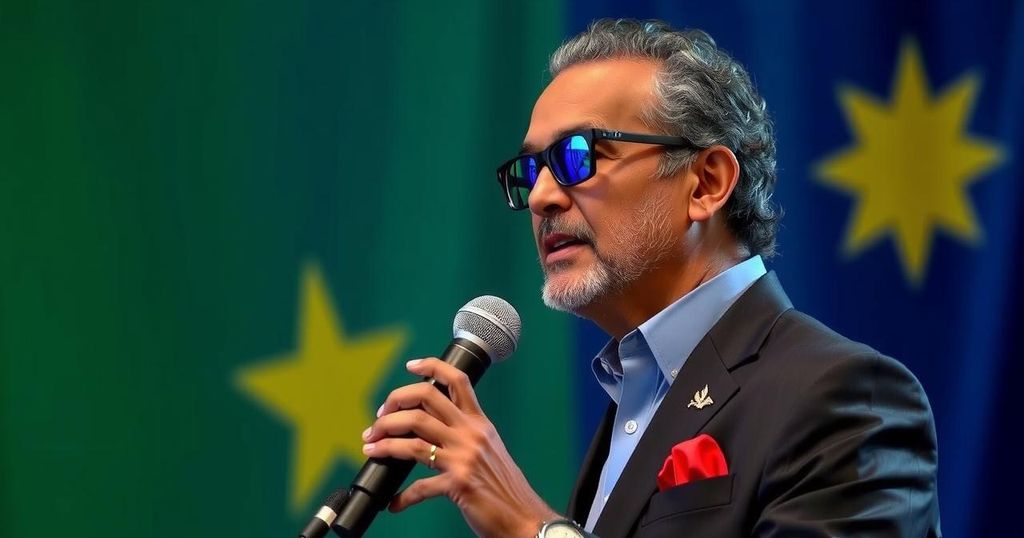Mauritius Prime Minister Acknowledges “Huge Defeat” in Recent Elections

Mauritius Prime Minister Pravind Jugnauth recognized a “huge defeat” in Sunday’s elections, indicating a likely victory for rival Navin Ramgoolam. The election, marred by a phone-tapping scandal, saw the government briefly impose a social media ban, which was quickly revoked due to public outcry. Jugnauth expressed respect for the electoral decision and wished for the country’s success amid this political shift.
Pravind Jugnauth, the Prime Minister of Mauritius, accepted a “huge defeat” for his coalition, L’Alliance Lepep, in the recent parliamentary elections. He acknowledged the electorate’s decision to support a different leadership team, clearly indicating the likelihood of Navin Ramgoolam, leader of the Alliance of Change coalition, assuming leadership of the nation. Although final results remain pending, it appears that Ramgoolam’s coalition is poised for victory. This election was shadowed by controversy, particularly due to a phone-tapping scandal that surfaced leading up to the polls, with unauthorized recordings of prominent figures circulating widely online. In an attempt to quell the situation, the government imposed a ban on social media, which sparked significant backlash and was reversed within 24 hours. In retrospect, Prime Minister Jugnauth expressed respect for the voters’ choice and wished the country prosperity moving forward after the election. Notably, this vote followed a landmark agreement with the United Kingdom regarding the sovereignty of the Chagos Islands, which was an important historical development for Mauritius.
Mauritius is recognized as one of Africa’s most stable democracies, having cultivated a robust political environment over the years. However, the recent elections faced challenges, including a significant scandal involving unauthorized surveillance, which highlighted concerns over political transparency and civil liberties. The political landscape shifted dramatically with the emergence of opposing coalitions, particularly after the agreement concerning the Chagos Islands, which illustrates ongoing tensions surrounding territorial and governance issues within the region. Such dynamics underscore the importance of public trust and participatory democracy in shaping the future of the country.
The recent parliamentary elections in Mauritius reflect a significant political transition as Prime Minister Pravind Jugnauth acknowledged a defeat and the probable ascendance of Navin Ramgoolam’s coalition. The election process was marred by controversy, yet it reinforces the core democratic principle that the electorate’s voice must be respected. The outcome may shape future governance and strengthen the public’s confidence in democratic processes, especially in the wake of the historic arrangement regarding the Chagos Islands.
Original Source: www.bbc.co.uk







